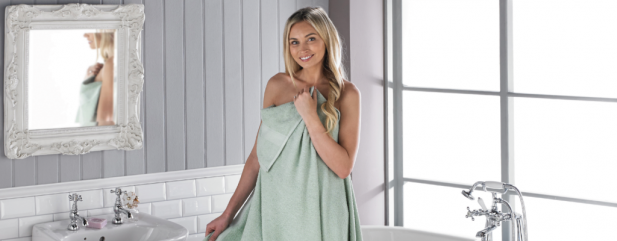Archived article
Please note that tax, investment, pension and ISA rules can change and the information and any views contained in this article may now be inaccurate.
Studio Retail: selling down by a big shareholder could be positive

When a heavyweight investor takes a significant stake in a business, many companies talk up that strategic investment. This is often the case in mining, where junior companies shout from the hill tops when one of the sector’s big players pop up on their share register.
If anything, online value retailer Studio Retail (STU), formerly known as Findel, has tended to play down the presence of Mike Ashley’s Frasers (FRAS) on its shareholder register, which may have distracted management in periods past while acting as
an overhang. Some investors may have even been put off
from buying the stock because they didn’t trust Ashley’s presence or were perplexed as to his intentions.
Sports Direct-owner Frasers remains a large shareholder, yet Shares notes it has reduced its stake from 36% to 27.1% at last count. And as a result, a relationship deal between these two companies, put in place to comply with the stock exchange’s ‘controlling shareholder regime’ listing rules, has been terminated.
Unpredictable retail magnate Ashley loves to make strategic investments in other retailers and brands, but he never bid for Studio Retail, to the likely disappointment of many investors.
The fact that Ashley is loosening his grip may work in the company’s favour. Unlike junior miners which so often desperately want the credibility of a big player on their shareholder register, Studio Retail may secretly welcome this dominant figure backing off. It could be the trigger for investors to reappraise the stock, particularly as the underlying business is making clear progress.
However, there is the question of who might pick up Frasers’ remaining stake, given it is still significant in size.
VALUE STOCK
Trading on a price to earnings ratio of 7.9 for the year to March 2022, according to Refinitiv data, Studio Retail falls under the banner of a value stock. This low rating is more about the past than the present.
It reflects a chequered past under its previous guise as the indebted Findel, as well as low awareness among investors (and indeed shoppers) of its efforts to improve the business which new CEO Paul Kendrick is seeking to address.
The business was put up for sale last year after being encouraged by Frasers and second biggest shareholder Schroders to conduct a strategic review. The former said the business was ‘misunderstood’.
In the end, Studio Retail decided to sell just its education division to private equity (which went for £30 million). The remaining focus is a thriving online retail business, and a strengthened balance sheet which provides a sturdy platform for growth.
Studio Retail increased revenue in the year to 26 March 2021 by a third to £578.6 million. Adjusted pre-tax profit from continuing operations increased by 79% to £48.8 million.
As Shares went to press (30 June), the company was scheduled to have held a capital markets day event online to give investors and analysts greater insight into the business and its medium-term ambition to reach £1 billion of sales. This teach-in could lead to increased analyst coverage, another factor in its favour.
IN A SWEET SPOT
Studio Retail was growing organically, adding active customers and taking market share even before lockdown, which drove even more shoppers online and forced brick and mortar rivals to temporarily pull down the shutters. It sells a broad range of affordable products including clothing and homewares, toys and gifts, many of which can be personalised in the company’s in-house facilities.

The company also has a flexible credit offer that appeals to cash-strapped consumers.
Kendrick points out this integrated credit model gives his charge the additional margin from financial services to help offset the costs of marketing and drives ‘significant customer loyalty’.
Shoppers can pay by credit or debit card, but the bulk of its customers open a flexible payment account that allows them to pay immediately or spread the cost over a number of months, with Studio charging interest on outstanding balances each month.
RECENT TRADING
Trading in its fourth quarter, traditionally quieter as it follows the Christmas rush, proved exceptionally strong, with product sales in the 13 weeks to 26 March 88% ahead of the prior year. Despite the economic havoc wreaked by Covid and growth in new credit customers, the arrears profile of the credit receivables book improved versus the same point in the previous year.
Core net debt, which represents drawings under its revolving credit facility net of cash held by the company, ended the year at £27.6 million, down from £51.8 million in March 2020.
And following the receipt of the education proceeds and drawings under the increased securitisation facility, Studio Retail had moved to a core net cash position as of 16 April 2021 – i.e. cash exceeded drawings on the group’s revolving credit facility.
Following the receipt of regular contributions from the company plus a £9 million special contribution following the education business sale, the pension scheme is now in a strong surplus against its funding targets, meaning Studio Retail has greater financial flexibility to grow the business.
Important information:
These articles are provided by Shares magazine which is published by AJ Bell Media, a part of AJ Bell. Shares is not written by AJ Bell.
Shares is provided for your general information and use and is not a personal recommendation to invest. It is not intended to be relied upon by you in making or not making any investment decisions. The investments referred to in these articles will not be suitable for all investors. If in doubt please seek appropriate independent financial advice.
Investors acting on the information in these articles do so at their own risk and AJ Bell Media and its staff do not accept liability for losses suffered by investors as a result of their investment decisions.
Issue contents
Editor's View
Exchange-Traded Funds
Feature
Great Ideas
- The car retailer whose shares are up 93% since we said to buy last May
- GlaxoSmithKline unveils ambitious growth targets
- Why we’re sticking with Burberry despite Gobbetti goodbye
- Ideal time to add inflation protection with this cheap trust
- Buy i3 Energy to play oil price strength and imminent dividends

 magazine
magazine








